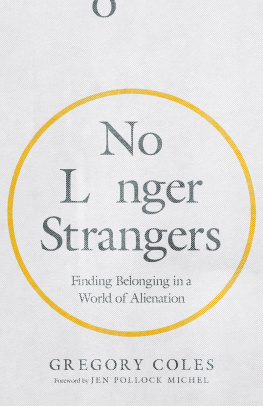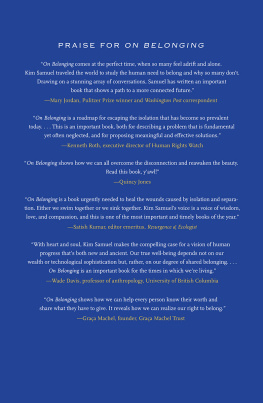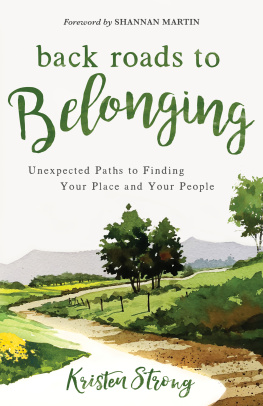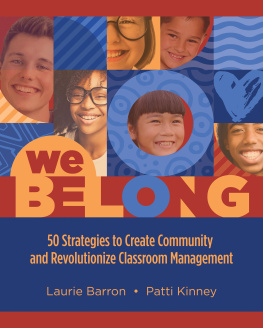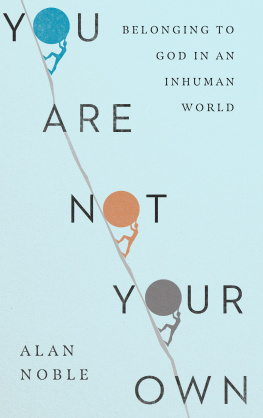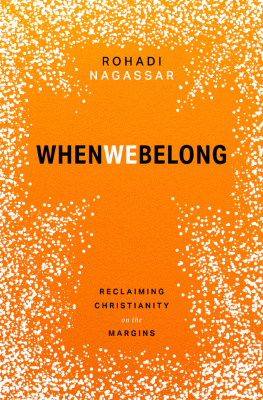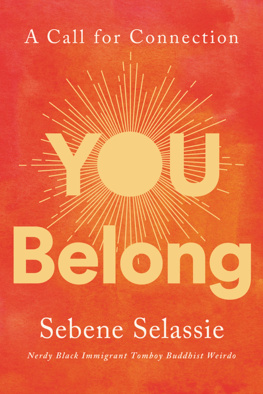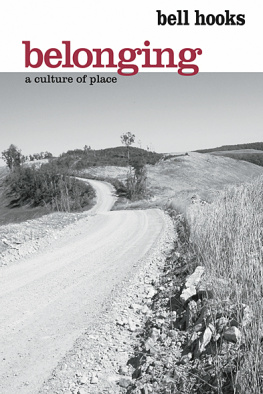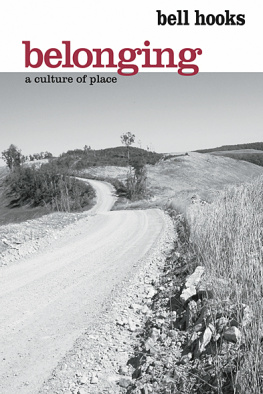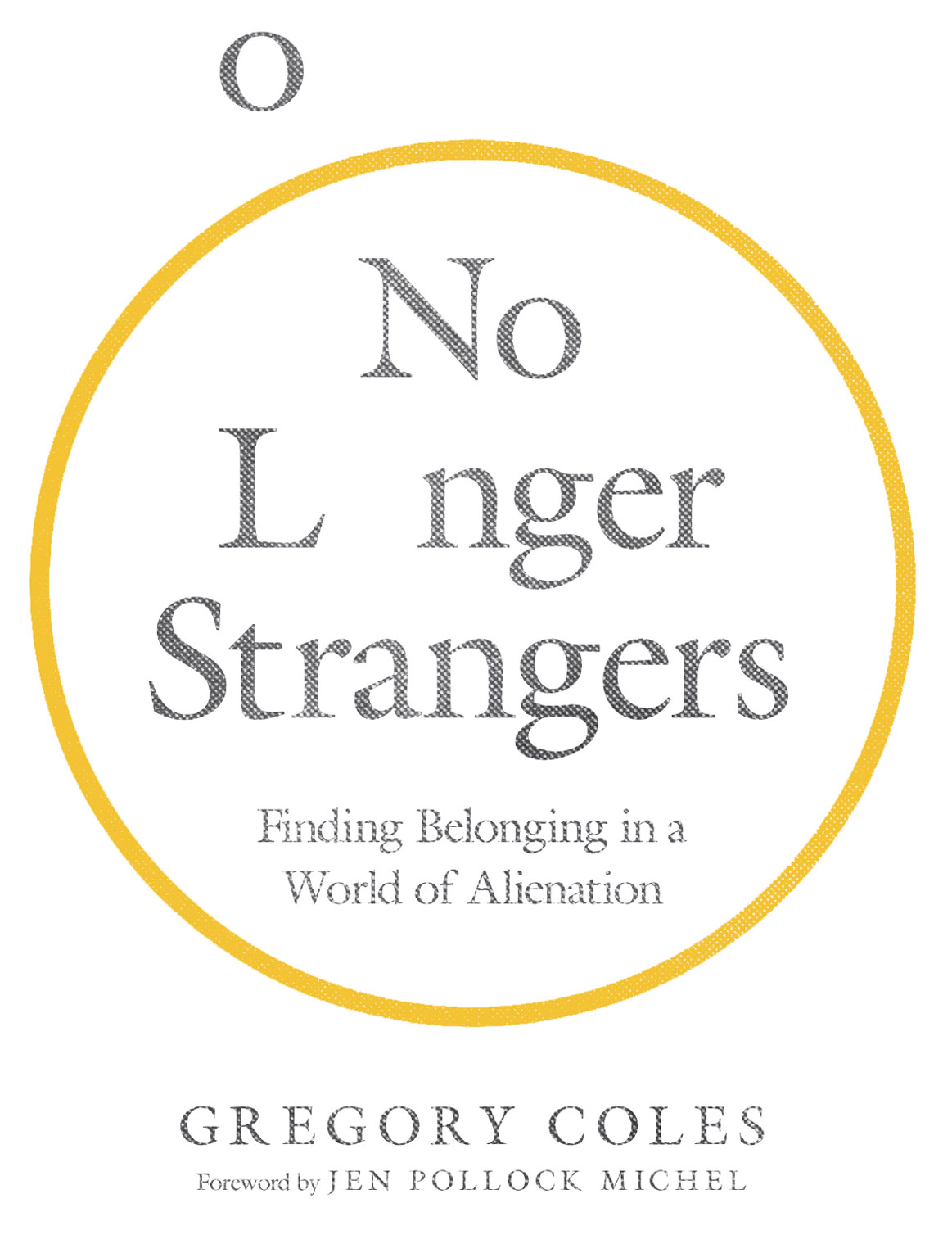Sommaire
Pagination de ldition papier
Guide
InterVarsity Press
P.O. Box 1400, Downers Grove, IL 60515-1426
ivpress.com
2021 by Gregory Coles
All rights reserved. No part of this book may be reproduced in any form without written permission from InterVarsity Press.
InterVarsity Pressis the book-publishing division of InterVarsity Christian Fellowship/USA, a movement of students and faculty active on campus at hundreds of universities, colleges, and schools of nursing in the United States of America, and a member movement of the International Fellowship of Evangelical Students. For information about local and regional activities, visit intervarsity.org.
All Scripture quotations, unless otherwise indicated, are taken from The Holy Bible, New International Version, NIV. Copyright 1973, 1978, 1984, 2011 by Biblica, Inc.Used by permission of Zondervan. All rights reserved worldwide. www.zondervan.com. The NIV and New International Version are trademarks registered in the United States Patent and Trademark Office by Biblica, Inc.
While any stories in this book are true, some names and identifying information may have been changed to protect the privacy of individuals.
This book is published in association with Nappaland Literary Agency, an independent agency dedicated to publishing works that are: Authentic. Relevant. Eternal. Visit us on the web at
www.NappalandLiterary.com.
The publisher can't verify the accuracy of website hyperlinks beyond the date of print publication.
Cover design and image composite: David Fassett
ISBN 978-0-8308-4791-4 (digital)
ISBN 978-0-8308-4790-7 (print)
This digital document has been produced by Nord Compo.
For Zack Filbert,
superb alien company
on this foreign Planet Earth.
Foreword
Jen Pollock Michel
I finished this wonderful book in the cramped front seat of my minivan. My sixteen-year-old daughter and I had arrived early (or so we thought) to the DMV on a Friday morning at the end of summer. As we turned left into the parking lot, we groaned at the snaking line, more than seventy-five people deep. We parked and took our place at the back of the parking lot. How long do you think we should expect to wait? the couple in front of us asked the DMV employee with the bullhorn. (It was his job to remind the bedraggled crowd that due to pandemic protocols, only customers with birthdays between January and June would be served.) From here? Probably two and a half hours. I was glad to have jammed my laptop into my bag before leaving, just in case.
To begin herein the front seat of my minivan, on the all-important drivers license errand for my sixteen-year-old daughteris to give a glimpse into the differences between Greg Coles and me. As a gay, celibate man, Greg leads, for the sake of his commitment to Jesus, a childless, sexless life. As the married mother of five children, I find myself on a Friday morning at the DMV, writing this foreword and practicing road test questions. On the surface, Greg and I might seem to share little in common beyond our Christian faith and our writerly vocation. In many churches, divided by demographics, Greg and I would remain practical strangers, finding ourselves in different small groups, different Sunday school classes, different pews, and at different Sunday lunch tables.
The voices of cultural common sense (and sadly, some churches) insist that belonging should be construed according to homogeneity. In this version of the good news, we belong to one another by virtue of our shared socioeconomics, our shared educational levels, our shared politics, our shared racial and ethnic identities, our shared domestic situations. Belonging is determined fundamentally by likeness. But this is tenuous belonging at best. The kind of belonging thats forged by sameness will be the kind to both exclude as well as include, to exile as well as welcome. Circles of sameness, especially in a fractured age like ours, seem inevitably positioned to constrict rather than expand.
But as Greg Coles so convincingly argues in this book, the gospels version of belonging is far stranger, far more wonderful, and far more resilient than any insiders club. The wide-armed promises of belonging in the Christian faith center on Jesus, who bore exclusion on the cross in order to tear down every dividing wall between humanity and Godand between every us and them.
Like Greg, Ive spent most of my life suffering the chronic feeling of estrangement. As a child, I constantly moved from place to place, never staying long enough to put down anything resembling roots. As a young adult, I faced the premature deaths of my father and brother, which forced me to reckon early with this worlds cruel impermanence. Now ten years into the immigrant experience, Im still struggling to answer the most elemental questions about home. Is home the place you leave? The place where you receive mail? For human beings, belonging is one of our most visceral desires. We long to be received, to be taken in. We want to be recognized and, in our absence, missed. These are the longings that Ive known in my own story of mobility and griefand also the longings that Greg has known in the airports of his childhood and in his alien calling of celibacy. We both know something about the inhospitality of this world and the elusiveness of earthly belonging.
But this is also to say we know something about hope.
There are many reasons why I might commend Gregs book to you, but it seems no small thing to suggest that readers will find it immensely hopeful. I dont mean hope as religious cant. Gregs hope for belonging is found in the gospel, yes, and as otherworldly as it is, its also marvelously entangled in the affairs of everyday life. Gregs hope is present as he folds laundry with friends, as he teaches impossibly long words to a pair of elementary-aged brothers at his church, as he shows up to hourly wage jobs and unwittingly makes friends. Gregs hope isnt removed from the suffering of the world. Its present in the awfulness of goodbyes, in the heartbreak of consequential disagreement, in the tensions of what we can only dimly understand this side of the veil. Gregs hope both weeps and reassures that tears will one day be dried. In other words, this isnt a book that traffics in warm and fuzzy pieties. Its a book that is storied and human, narrated by one man who is braving the cold winds of this world and avowing the warm arms of Christ. This is a book whose writer assures every reader: wherever you come from, whatever baggage you carry, you can belong too.
When No Longer Strangers had only just begun to take shape, Greg tried to explain his vision for these pages to Jane Crandell, his white-haired friend at church. She took his hands in hers, veined and weathered by years, and told him belonging mattered, that it might be the best invitation we could offer to this homesick world of ours. Jane knew, as Greg knows, that belonging is not just the balm of Gilead to salve our own wounded souls. Its something we offer to other wounded pilgrims, who wonder where to find shelter, who cant begin to imagine an expectant father at the end of their very long road, who must be encouraged to smell the feast.
Whether you feel at home in the world or you dont, the belonging that Jesus offers to each of us is good, sure news. It is good, sure news for usand also for the world.

